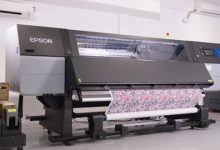
- More than 3 in 5 Southeast Asians stated sustainability as an important factor when choosing a printer but only a third believed inkjet printers to be better for the environment
- Half of the respondents would make the switch if the printer was shown to have more eco-friendly outcomes

Epson, a global leader in professional printing, has released new findings from its report Road to Sustainable Printing: Exploring Attitudes and Behaviours in Southeast Asia. Based on a survey of 1,500 office decision-makers across Singapore, Malaysia, Thailand, Indonesia, The Philippines, and Vietnam, the study reveals how printing behaviors are evolving alongside a growing focus on sustainability in the workplace. However, it also highlights that many businesses still lack clarity on sustainable printing solutions.
Hybrid Work and Digitalization Transform Printing Practices
Printing remains integral in Southeast Asia, with 40% of office decision-makers and end-users still using printers daily. However, hybrid work models and digitalization are driving changes in printing habits, creating a demand for more flexible printing options. Digital solutions that were once considered optional are now vital to business operations, with many organizations starting their digitalization journey with document-sharing platforms. While sectors like construction (39%) and retail (40%) are slower to adopt digital alternatives, industries such as consulting, professional services (50%), and advertising (48%) are more proactive in shifting to softcopy documents.
The size of a business also influences the transition to digital formats. Small businesses (1-50 employees) show 41% adoption of softcopy documents, while medium-sized businesses (51-500 employees) reach 48%. Larger companies (501+ employees) have a slightly lower adoption rate at 45%.
Rising Demand for Digital Integration and Sustainability
The report highlights that 44% of respondents desire more advanced digital integrations, such as cloud printing, with environmental sustainability being the top priority for 50% of respondents. Compactness and space-saving printers are also becoming increasingly important, with 80% of participants emphasizing the need for high productivity and durability within limited office spaces.
Factors such as convenience (46%), cost-effectiveness (44%), and growing awareness of sustainable printing practices (41%) are contributing to the shift in printing habits. These insights underscore the importance of balancing practicality with sustainability in modern workplaces.
The Sustainability Gap: Awareness vs. Action
Despite the growing awareness of sustainable practices, there remains a significant gap between intentions and action. Over 60% of respondents view sustainability as a key factor in printer selection, and 63% are willing to pay more for eco-friendly printing solutions. However, the actual adoption of sustainable practices like double-sided printing (38%) and paper recycling (34%) remains limited.
Jester Cruz, Senior Regional Manager for Corporate Products at Epson Southeast Asia, explained, “While most respondents recognize sustainability as crucial, fewer than one-third are willing to pay extra for more sustainable solutions. The good news is that many respondents are willing to switch to inkjet printers if shown they have less environmental impact.”
Misconceptions About Inkjet vs. Laser Printers
A common misconception persists in the region, with 34% of respondents believing that laser printers are more eco-friendly than inkjet printers. However, Epson has phased out laser printers as part of its commitment to sustainability, focusing on inkjet technology, which requires less energy due to the absence of heat in the printing process.
Cruz added, “Printers are among the top energy consumers in an office, and by replacing laser printers with Epson’s Heat-Free inkjet printers, businesses can cut energy consumption by up to 85%. This reduction in electricity usage directly lowers CO2 emissions, benefiting both the environment and the bottom line.”
Epson’s Commitment to Sustainability
Epson continues to lead with its focus on energy efficiency and sustainable technology. The company believes that sustainable innovations not only benefit the environment but also provide economic value. As Cruz summarized, “Epson will continue to champion sustainability as a core business practice, creating technologies that are efficient, compact, and precise while contributing to a greener future.”
As businesses in Southeast Asia strive to balance sustainability with operational efficiency, Epson’s report underscores the importance of advancing digital printing solutions and embracing eco-friendly practices for a more sustainable future.







